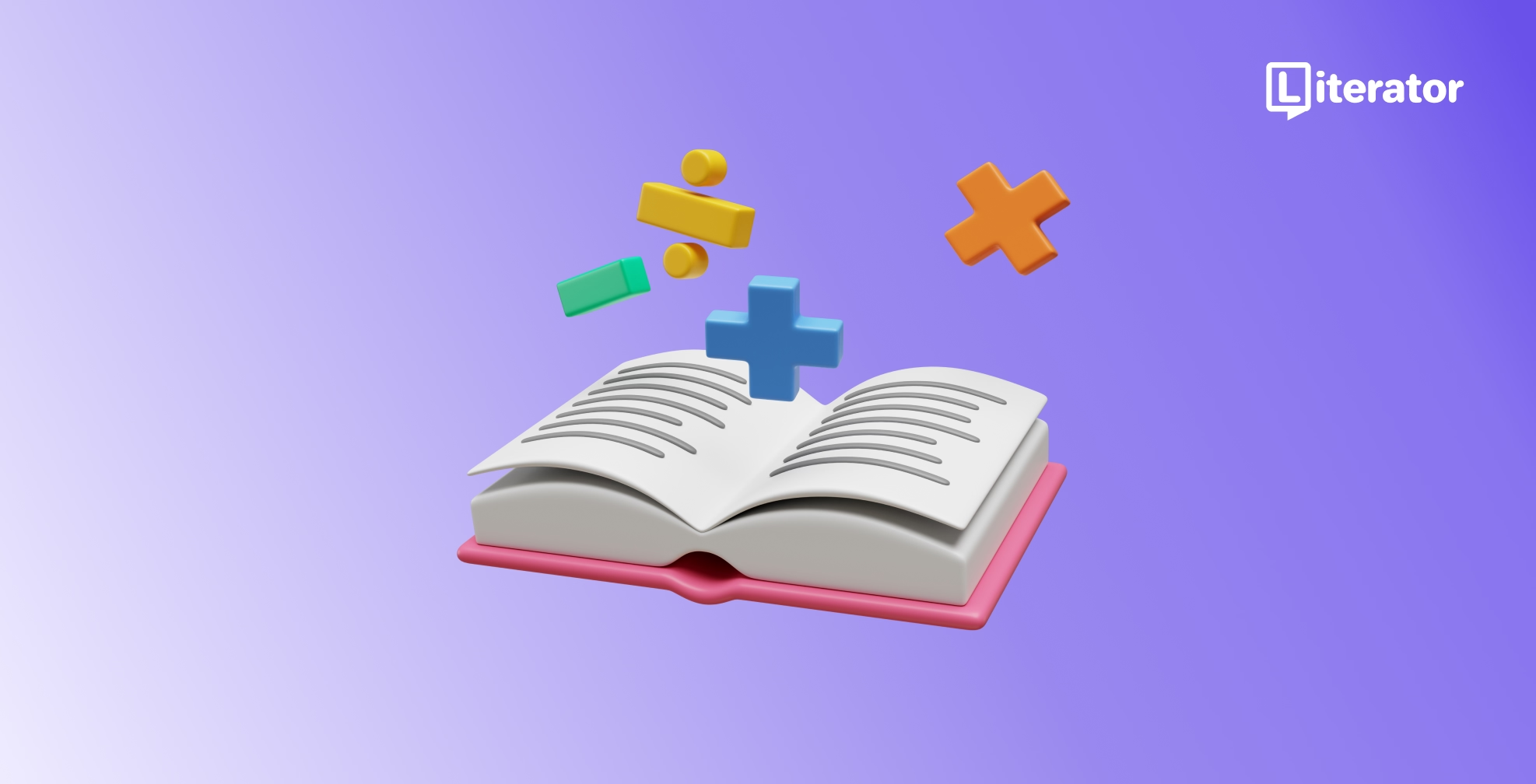Set reading goals with tools like Literator, which can help you track your progress and stay on target. Using a tool keeps you motivated and organized throughout your reading journey.
This post will outline five simple steps to set and track your goals. We’ll start by creating realistic goals that fit your life. You’ll also learn how to build a reading list that excites you, set targets with audiobooks to save time, stay motivated, and accomplish reading goals with world classics to make your reading more meaningful.
How Do You Set Reading Goals That You Can Stick To?
The first step is to be honest with yourself. It’s easy to get excited and set a too-ambitious objective, but if you don’t have the time or interest, you’ll find it hard to keep up. Start small. Think about how much time you can realistically spend reading a book each day.
If you’re just starting, aim to respecification numbers, like one book per month or a chapter daily. Clear and realistic goals make it easier to track your progress and build a consistent reading habit. Pick books that genuinely interest you so you don’t lose motivation.

Why Are Realistic Reading Goals Important?
Realistic reading purposes help you develop a habit that adds value to your life. Setting small and achievable goals keeps the pressure off and keeps you on track.
When you consistently meet your goals, you feel accomplished, which motivates you to keep going. It’s better to exceed a small goal than to struggle with an unrealistic one. Realistic goals also let you adjust when life gets busy so you can maintain your daily routines without stress.
What Are the Benefits of Using Audiobooks to Achieve Reading Goals?
Set reading goals with audiobooks to maximize your time, especially if you have a busy schedule. Audiobooks let you enjoy content while doing other activities, so you don’t need extra time for more books.
Listening to audiobooks brings stories to life in a unique way. A skilled narrator can engage the material, helping you absorb information and enjoy the experience more than reading alone.

Why Are Audiobooks Ideal for Busy Readers?
Audiobooks are perfect for those with packed schedules. You can listen while commuting, working out, or doing chores, turning idle time into productive study time. This flexibility makes audiobooks an excellent tool for readers who want to meet their reading goals but struggle to find time. With headphones, you can keep up with your journey wherever you are.
Popular Audiobook Platforms to Track Your Reading Goals
Several platforms offer a great selection of audiobooks and ways to track your reading goals:
- Literator: A great platform with various audiobook options from every genre. Literator allows you to create a customized reading list that keeps your books and articles neatly organized and accessible whenever needed. Track your progress, bookmark your place, and enjoy a seamless experience tailored to your preferences.
- Audible : A well-known platform with a vast library of audiobooks. It lets you track your listening stats, set daily goals, and earn badges.
- Libby : A free app that lets you borrow audiobooks from your local library. It helps you manage loans and due dates easily.
- Scribd : A subscription service with access to both audiobooks and eBooks. You can track progress across multiple formats.
What Role Do Book Summaries Play in Reaching Your Goals?
Reading goals with book summaries are perfect for busy readers. Summaries let you grasp the main ideas without needing to read every page, making it easier to stay informed and meet your goals.
Summaries highlight the most important concepts and themes, letting you cover more material in less time.
How Can Book Summaries Save Time and Boost Understanding?
Summaries save time by cutting straight to the critical points of a book. Instead of spending hours reading every chapter, you can focus on the big ideas. This is especially useful if you are working through dense or complex books.
Summaries also help boost understanding. If a book is particularly challenging, reading a summary can give you a solid foundation. After reading the full version, summaries help reinforce what you have learned.

Why Should You Include World Classics to Accomplish Goals?
Accomplish reading goals with world classics to add depth and variety to your reading experience. Classics expose you to different writing styles, historical settings, and universal themes. They challenge your critical thinking and help you see the world differently.
World classics also teach about different cultures and philosophies. By including them in your reading list, you enrich your understanding and appreciate great literary works.
With Literator, you can enjoy classic texts in their original format or choose a modernized version for easier reading. This flexibility makes classic literature accessible to all.
Recommended world classics to include in your reading list
If you want to expand your journey, start with these timeless world classics :
- War and Peace by Leo Tolstoy: This novel is set during the Napoleonic Wars and explores the lives of several Russian families.
- One Hundred Years of Solitude by Gabriel García Márquez: This novel takes you on a journey through the lives of the Buendía family in the fictional town of Macondo.
- Don Quixote by Miguel de Cervantes: Often called the first modern novel, Don Quixote is funny and thought-provoking. It follows the adventures of a man who believes he is a knight.
- Crime and Punishment by Fyodor Dostoevsky is a psychological study of guilt, morality, and redemption. It follows a young man who commits a crime and struggles with his conscience.
- The Tale of Genji by Murasaki Shikibu: Considered the world’s first novel, The Tale of Genji gives you a glimpse into Japanese aristocratic life in the 11th century.
- Things Fall Apart by Chinua Achebe: Achebe’s novel is a powerful story of a Nigerian village dealing with the arrival of European colonialism. It is a thoughtful exploration of cultural identity, tradition, and change. The themes in this book still feel incredibly relevant today.
These classics will challenge your reading comprehension and deepen your appreciation of world literature.
Conclusion
We’ve covered five simple steps to help you set and track your goals:
- Set clear, manageable goals that fit your schedule.
- Create a reading list with books that excite you.
- Set goals with audiobooks to maximize your time.
- Explore world classics to enrich your reading.
- Use tools like Literator to track progress and stay organized.
Following these steps will help you meet your target and enjoy the process. Reading can be fulfilling and enjoyable, whether through audiobooks or world classics.
